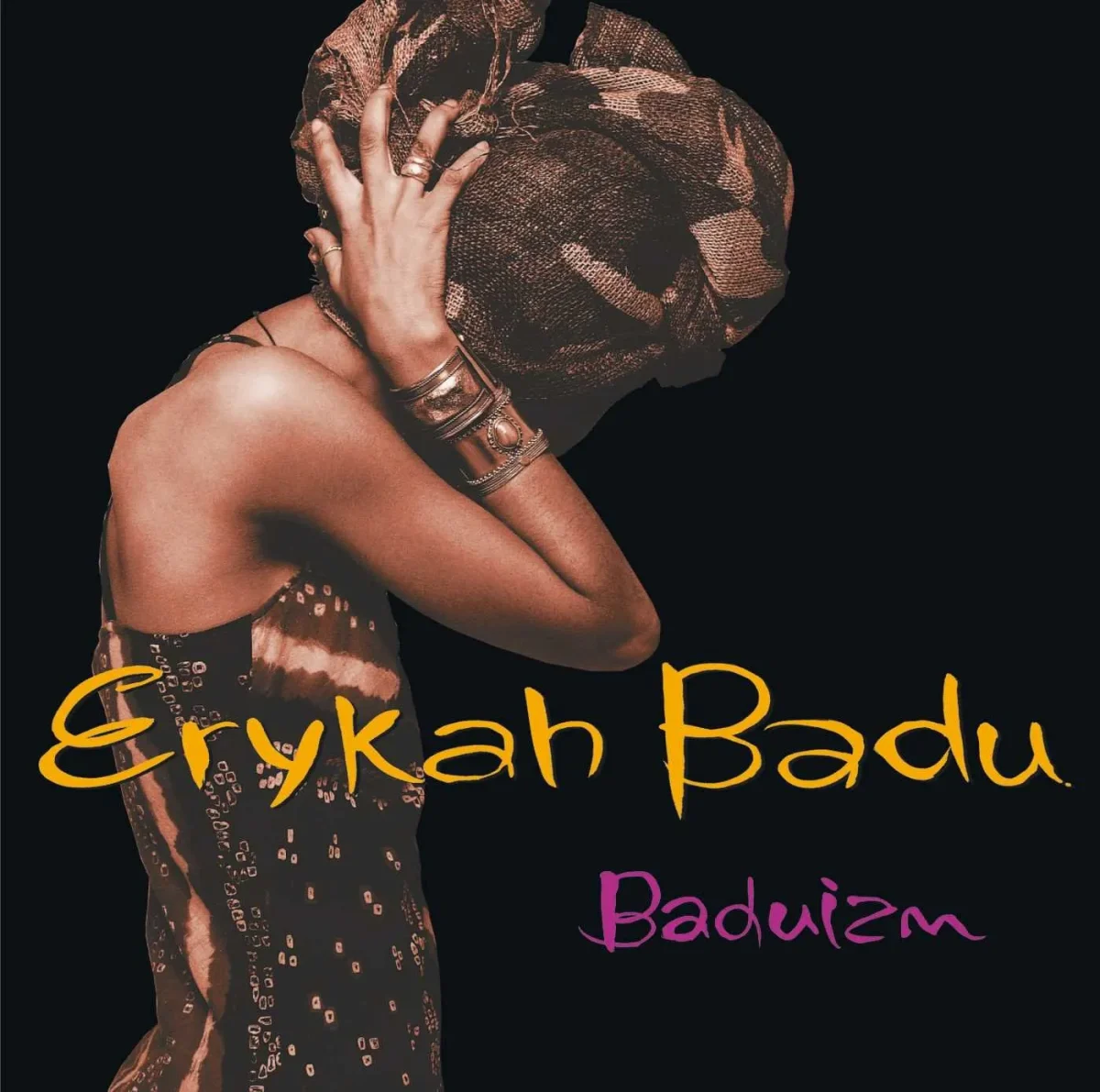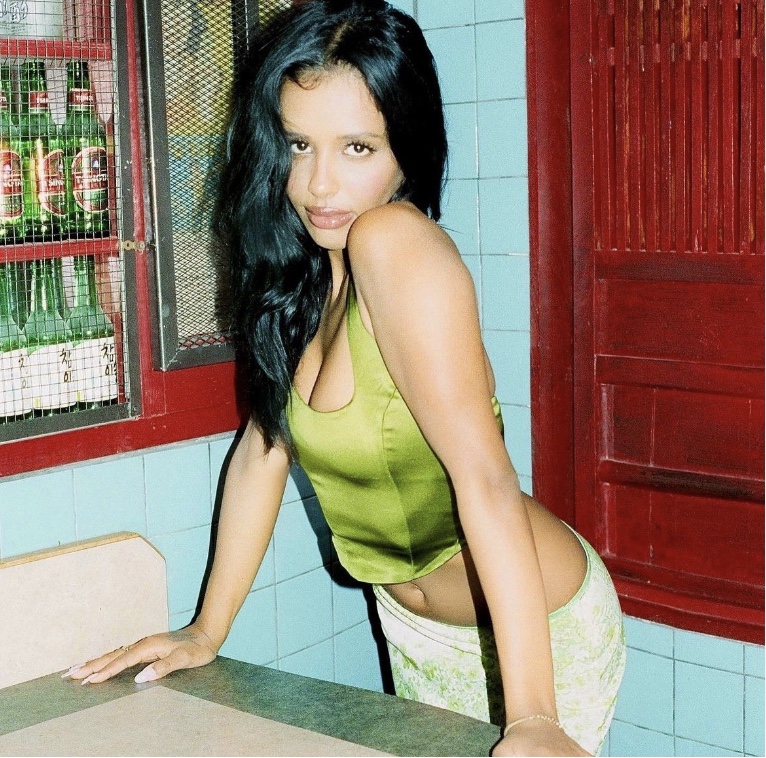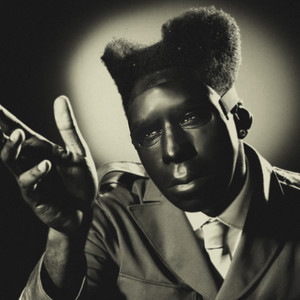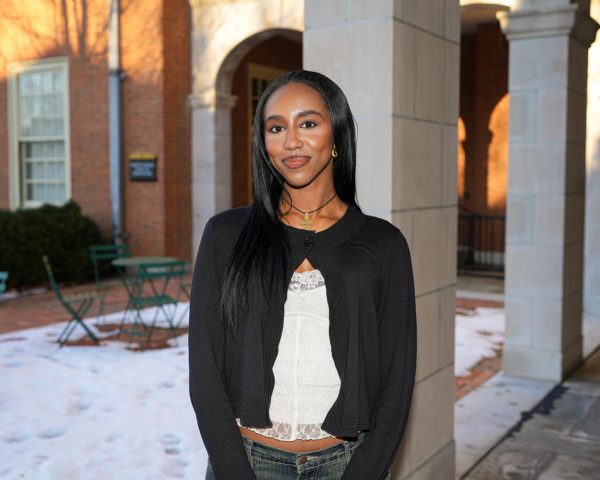“Double discrimination” is a phenomenon that describes the simultaneous gendered and racial discrimination that Black women are subjected to.
Long-term exclusion from feminist discourse and various social movements has led Black women to express themselves through a different platform — music. A platform through which Black women can unapologetically and authentically voice their ideas and beliefs.
Enter Erykah Badu, aka Badulla Oblongata, aka FatBellyBella, aka SHE ILL.
Nearly three decades ago, Badu debuted her talent in the music scene with her 1997 album “Baduizm.”
The moment her opening track “Rim Shot” begins, her eclectic sound is undeniable — leaving listeners in a trance. With ease, she uses sultry tones and jazzy melodies, adding her own edge and completely transforming the trajectory of neo-soul.
The reason why Badu’s artistry is so unique is because she’s broken barriers both musically and culturally. Using her creative talents, she challenges stereotypical notions of Black femininity and sexuality while simultaneously embracing them.
One way that Badu challenges the over-sexualization and objectification of Black women is in her celebration of “Afro-centrism” by emphasizing self-love through her stylistic choices.
From rocking the natural fro to floor-length braids to locks to arguably her most notable hairstyle — the trademark head wrap — Badu tosses away American beauty standards and encourages sisters to embrace Afro-centric styles.
“We are making a political statement when we wear an afro or locks,” Badu said in an interview at the 2015 BET Experience. “We’re being who we are, especially in a society that does not encourage that part of our beauty.”
This sense of confidence that Badu emphasizes can be found in one of my favorite songs off “Baduizm.” The opening of her song “Appletree” plays on the analogy of comparing her wisdom to fruits on a tree.
“I have some food in my bag for you. Not that edible food. That food you eat? No. Perhaps some food for thought. Since knowledge is infinite, it has infinitely fell on me,” Badu melodically states.
She goes on to explain that she is confident in who she is and has zero interest in conforming to fit in with others.
“I don’t walk around tryna to be what I’m not. I don’t waste my time tryna get what you got,” she sings. As a Black girl who is what some might describe as artsy, these sentiments of individuality stuck with me.
If you’re familiar with Badu’s repertoire, her 1997 live performance of “Tyrone” will forever be a classic. If you haven’t seen it, I encourage you to do yourself a favor and watch it.
Badu was freestyling at a show in London when she created “Tyrone.” Despite not being on the original album, it appeared on a live version of “Baduizm,” released a few months later.
“My sister and I always imitated our aunts,” Badu said in a 2023 interview. “They would be fussing and talking about a guy and what he needs to do better. Ya know, tearing him down. That was my homage to that.”
This one is meant to have a lighter, less serious feel, and Badu’s lesson is quite simple: don’t let anyone walk all over you or take advantage of you.
Seeing Badu perform “Tyrone” this past summer was definitely a pivotal point in my life. It was an insane experience to see all the melanated women around me blinged out in jewelry, waist beads and intricate head wraps waving their arms around while belting the lyrics.
Even in her use of imagery, she makes implicit statements about the objectification of Black women like in the music video for “On & On” (her most played song on “Baduizm”). Wearing a long-sleeve shirt, ankle-length skirt and work boots, she makes it a point to conceal her body. At one point, she goes to a “juke joint” and performs to a crowd wearing a green patterned tablecloth.
This message was impactful. Despite the one-dimensional perspective placed on us, the essence of Black women — our intellect, aura and style – speaks for itself. We shouldn’t need to go above and beyond just to be categorized as feminine, but we also have the capacity to be exceptional. That is what Badu exemplifies so well in challenging stereotypes of Black women in her artistry.
Despite the erasure of Black women’s experiences in many spaces, music has been and will continue to be an outlet where artists highlight how multi-faceted Black women are. I would highly recommend everyone to give this timeless album a listen. Regardless of whether you pick up on all her clever lyrics and double meanings, there is much to take away from “Baduizm.”

















